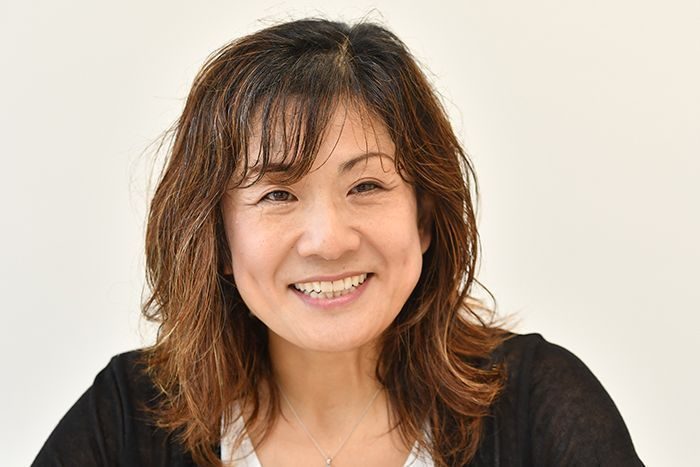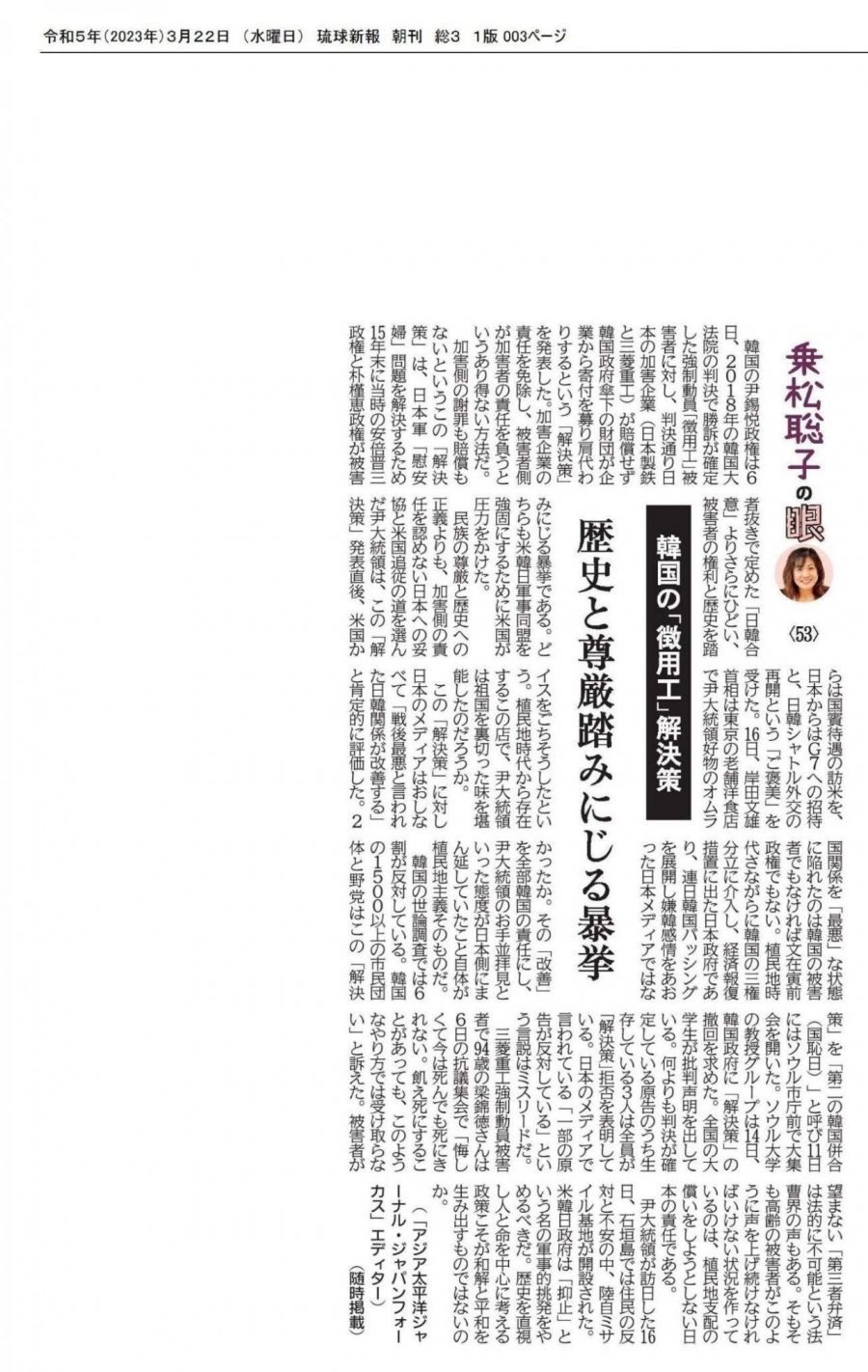
By Satoko Norimatsu
On March 6, the Yoon Suk-yeol government of the Republic of Korea announced a “solution” for the victims of forced mobilization under the Japanese colonial rule who had won their cases in the 2018 Korean Supreme Court rulings. In this “solution,” a foundation established by the Korean government plans to accept donations from corporations and shoulder the responsibility instead of the Japanese perpetrating companies, Nippon Steel and Mitsubishi Heavy Industries, paying compensation as per the ruling. This is an inconceivable way of exempting the perpetrating companies from responsibility, while the victimized country bears the responsibility of the perpetrators.
This “solution” involving no apology or compensation from the perpetrators is an outrage that tramples on victims' rights and history, even worse than the Japan-Korea “Comfort Women” Agreement reached at the end of 2015 by then Abe Shinzo and Park Geun-hye administrations without consulting victims. There was pressure by the U.S. government, in both of these instances, to strengthen the US-Korea-Japan military alliance.
President Yoon, who had abandoned national dignity and historical justice and chose a path of compromising with Japan and subjugating himself to the United States, got rewarded immediately after the announcement of the "solution," receiving a state guest visit from the U.S. and an invitation to the G7 summit in May, as well as the resumption of bilateral “shuttle diplomacy” from Japan. On March 16, Prime Minister Kishida treated President Yoon to his favorite dish, omuraisu (omelette with rice filling), at an old Western-style restaurant in Tokyo established in 1895. For President Yoon, what was the taste of betrayal of his mother country like at this restaurant that has existed since the colonial period?
The Japanese media have largely given favourable coverage on this “solution,” saying that it would improve bilateral relations, which had been at the “worst state in the post-war period.” For the record, it was neither the Korean victims nor the previous Moon Jae-in administration that plunged bilateral relations into the “worst” state. It was the Japanese government, which intervened in the separation of powers in Korea as it did during the colonial period, and took economic retaliatory measures. It was also the Japanese media, which aggravated anti-Korean sentiment in society through daily anti-Korean bashing. The fact that the Japanese government put all the responsibilities on the Korean government for the “improvements” of bilateral relations and maintained the arrogant attitude of “let’s see what the Koreans come up with” itself reveals Japan’s persistent colonialism.
About sixty percent of people in the ROK oppose the “solution,” according to an opinion poll. The country’s opposition parties and more than 1,500 civil society organisations called the “solution” a “Second Annexation of Korea (National Humiliation Day)” and held a large rally in front of Seoul City Hall on March 11. A group of professors from Seoul National University called on the government to retract the “solution” on March 14. University students across the country have issued statements of criticism against the “solution.” Above all, the three surviving plaintiffs of the 2018 Supreme Court rulings have ALL expressed their rejection of the “solution.” The prevailing narrative in the Japanese media that “a fraction of plaintiffs is opposing” is misleading.
At a protest rally in Gwangju on March 6, 94-year-old Liang Geum-deok, a victim of forced labour at Mitsubishi Heavy Industries, said: “I am so frustrated that I cannot die now. Even if I have to starve to death, I will not accept it in this way.” Some in the legal community are challenging the legality of the “third-party repayment” rejected by the victims. At any rate, it is the responsibility of Japan, which refuses to atone for the crimes of colonial rule, which has created the situation where elderly victims have to keep raising their voices this way.
While President Yoon was visiting Tokyo on March 16, the Japanese Ground Self-Defence Forces opened a missile base on Ishigaki Island, amid protest and concern from the local residents. The U.S./Japan/ROK governments should stop military provocation in the name of “deterrence.” That which can truly bring reconciliation and peace is a policy that honestly faces history and centres on people and their lives.




